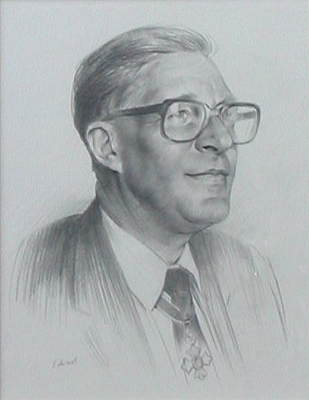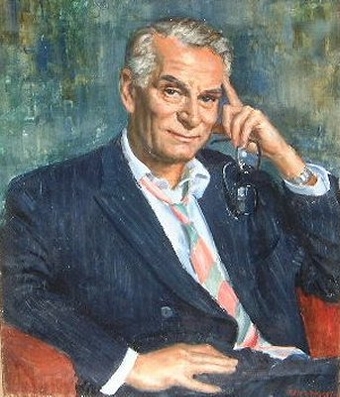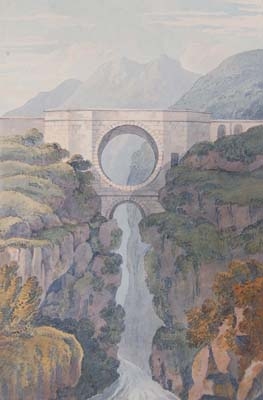featured item
portrait of richard hetherington esq. president of the virgin islands
- View other items in:
- antiques interior design modern and vintage
- other interior design
artware ltd
Enquire about this antique
Artware Ltd has 565 antiques for sale.
click here to see them all
in ornate giltwood frame
bearing various labels verso. "Richard Hetherington Esq. President of The Virgin Islands and of The Hill Burton in Lonsdale, Yorkshire. Born 1740 died 1821". "The original of the picture is in the possession of his grandson Charles Richard Robinson Esq. J.P of Brettonby Manor, Yorkshire". "The original is now at Great Chesterfield House, Great Chesterfield, Essex and belongs to Mrs G.G. granddaughters the Misses E.M.S. and L.P. Robinson of Hinxton ." The portrait is inscribed itself "A copy by C. Burlison 1872 from a portrait by Parkinson 176. Clement Burlison (1815-1899 British).
Colonel Richard Hetherington b Dec 1737 (Hollins, Westmoreland, England), died Aug 1821 at Tortola and Mary Pickering b. circa 1743, d. 1788 (Thornton in Lonsdale, Lancashire). He was a merchant of Liverpool and Lancaster, and a sugar planter, he was in Tortola by 1777.
He owned 5 sugar plantations in Tortola, and owned 225 male slaves and 233 female slaves. From 1811 to 1821 he was the President of the British Virgin Islands. He travelled back to England frequently because he fathered 6 children by his wife, Mary Pickering. She never travelled to Tortola because of the hot and humid climate. She died in 1788 aged 45. A hurricane hit Tortola in 1819; 4 people died and Richard was injured. He died in 1821 in Tortola.
Richard Hetherington was President of the Council during the time of the trial of Arthur Hodge for the murder of the slave "Prosper". Hetherington appears to have taken on the role of prosecuting counsel. In response to the submission that Hodge could not be guilty of murdering his own slave, Hetherington is reported to have submitted to the jury:
"...the law makes no distinction between master and servant. God created white and he created black creatures; and as God makes no distinction in administering justice, and to Him each is alike, you will not, nor can you alter your verdict, if murder has been proved - whether on white persons or on black persons, the crime is equally the same with God and the law.
Hetherington''s star would later wane though, and he would eventually be removed from office for financial irregularities.
Arthur William Hodge (1763 - 1811) was a plantation farmer, member of the Council and Legislative Assembly, and slave owner in the British Virgin Islands, who was hanged on 8 May 1811, for the murder of one of his slaves. He was the first West Indian slave owner to be executed for the murder of a slave considered his property, and perhaps the only British West Indian slave owner, or British subject, to be executed for murdering his slave. He was not the first white person to have been lawfully executed for the killing of a slave, as some have claimed.
He was born in the British Virgin Islands, studied at Oriel College, Oxford and served in the British Army. His wife was a sister-in-law of the Marquess of Exeter. He was described as a man of great accomplishments and elegant manners. After his father''s death, he returned to the British Virgin Islands to assume control of the family''s plantation.
In 1811, Hodge was indicted for the murder of a single male slave, part of his estate, named Prosper. Restrictions on similar fact evidence were more casual in colonial courts. Trial reports suggest that Hodge was a sadistic and disturbed man. During the trial evidence was presented that Hodge caused the deaths of other slaves in his estate, including: Tom Boiler, Cuffy, Else, Jupiter, Margaret, and Simon Boiler. Three male slaves: Jupiter, Tom Boiler and his brother Simon Boiler, were whipped to death. Slaves Margaret and Else died after boiling water was poured down their throats. Evidence was presented that Hodge was cruel to child slaves, including his own offspring: Bella, a small mulatto girl of about 8 years of age, who was his offspring by his slave, Peggy; and that he held the heads of several mulatto children, possibly more offsprings, under water until they lost consciousness, then revived them, and repeated the process. Hodge previously had over 100 healthy negro slaves on his plantation, but when his wife died there were no longer enough slaves to dig a grave for her according to witness Daniel Ross.
Hodge had a reputation on Tortola for cruelty towards slaves. The main evidence given at the trial relating to the death of Prosper was given by Perreen Georges, a free woman of color. She testified that: "I was present when he [Prosper] was laid down and flogged for a mango which dropt [sic] off a tree, and which Mr Hodge said he should pay six shillings for; he had not the money and came to borrow it of me, I had no more than three shillings; he said to his master that he had no more money; his master said he would flog him if he did not bring it; he was laid down and held by four negroes, on his face and belly, and flogged with a cartwhip; he was under the last better than an hour; he then got up and was carried up to the hill; and his master said he should be flogged again if he did not bring the other three shillings; he was tied to a tree the next day; and the flogging was repeated; he was licked so long that his head fell back, and he could not bawl out any longer; I supposed he was faint; I then went from the window, as I could not bear to see any more of it." The assaults took place on 2 October 1807 and the following day. On 15 October 1807, Prosper died of his wounds. Hodge was not indicted till 11 March 1811. Then he fled from his estates and was arrested by warrant. The evidence against Hodge was strong and credible, and Hodge''s defence was not strong. The two strongest prosecution witnesses were Stephen McKeough, a white man who inspected the Hodge estate, and Perreen Georges. Hodge tried to discredit them by alleging that McKeough was a drunk, and Georges was a thief. Hodge did not try to impeach the reputation of the third prosecution witness, Daniel Ross, Justice of the Peace. Hodge called his sister, Penelope, and a witness described as an "old black woman" to give testimony to his innocence, but reports suggest that their evidence was not regarded as credible. As is customary in common law legal systems, the defendant was allowed to address the jury before they retired to consider their verdict, and Hodge said this: "As bad as I have been represented, or as bad as you may think me, I assure you that I feel support in my afflictions from entertaining a proper sense of religion. As all men are subject to wrong, I cannot but say that the principle is likewise inherent in me. I acknowledge myself guilty in regard of many of my slaves, but I call God no witness to my innocence in respect to the murder of Prosper. I am sensible that the country thirsts for my blood, and I am ready to sacrifice it." However, the jury were also charged with the words of Richard Hetherington, President of the Council of the Territory:
"...the law makes no distinction between master and servant. God created white and he created black creatures; and as God makes no distinction in administering justice, and to Him each is alike, you will not, nor can you alter your verdict, if murder has been proved - whether on white persons or on black persons, the crime is equally the same with God and the law." On 30 April 1811, the jury retired to consider their verdict at about half past six in the morning. By eight o''clock, they returned with a guilty verdict. A majority of the jurors recommended mercy for Hodge. Such recommendations were not binding, and the presiding judge, Chief Justice Robertson, pronounced that Hodge should be "hanged by the neck on Wednesday the 8th of May following, until he was dead, on a spot near unto the common prison."
Hetherington''s Son also Richard was born in England (Christened in Burton In Lonsdale, Lancashire) and was a naval Captain. He married Mary Bell b. circa 1785 d. 30 November 1819 (during a hurricane at Tortola). Mary and Richard had two daughters Caroline Lavinia Fitz Hetherington (b after 1805) at Tortola and Bell Ellis Hetherington (b after 1805) at Tortola. From 1821 to 1837 he was the President of the British Virgin Islands. In 1843 he became a Lieutenant of the Royal Navy. Bell Ellis Hetherington (b after 1805) at Tortola married Alan Stewart circa 1840''s, Alan Stewart and Bell Ellis Hetherington had at least one son, John Ellis Stewart b. 1848 in Prahran, Melbourne, Victoria, Australia d. 21 December 1918 in Prahran, Melbourne, Victoria, Australia, (buried 23 December 1918 in St Kilda Cemetery, Melbourne, Victoria).
Antiques.co.uk Ref: QTX3HXN5
- Materials:
- Oil on Canvas
- Width (cm):
- 73.66 x 60.96 cm 29.00 x 24.00 ins
Artware Ltd
Artware Fine Art specialises in fine antique, decorative and historical portraits and topographical pictures . We cover a period from the 17th and 18th centuries through to the 19th & 20th Centuries. We have over 150 portraits in stock, which can be viewed on our web site, each historical portrait has well researched biographical information both on the sitter and the artist.
Contact details
18 La gare
51 Surrey row
London
Greater London
SE1 0BZ
UNITED KINGDOM
T: 0207 921 97904
E: greg@artwarefineart.com
W: www.artwarefineart.com














